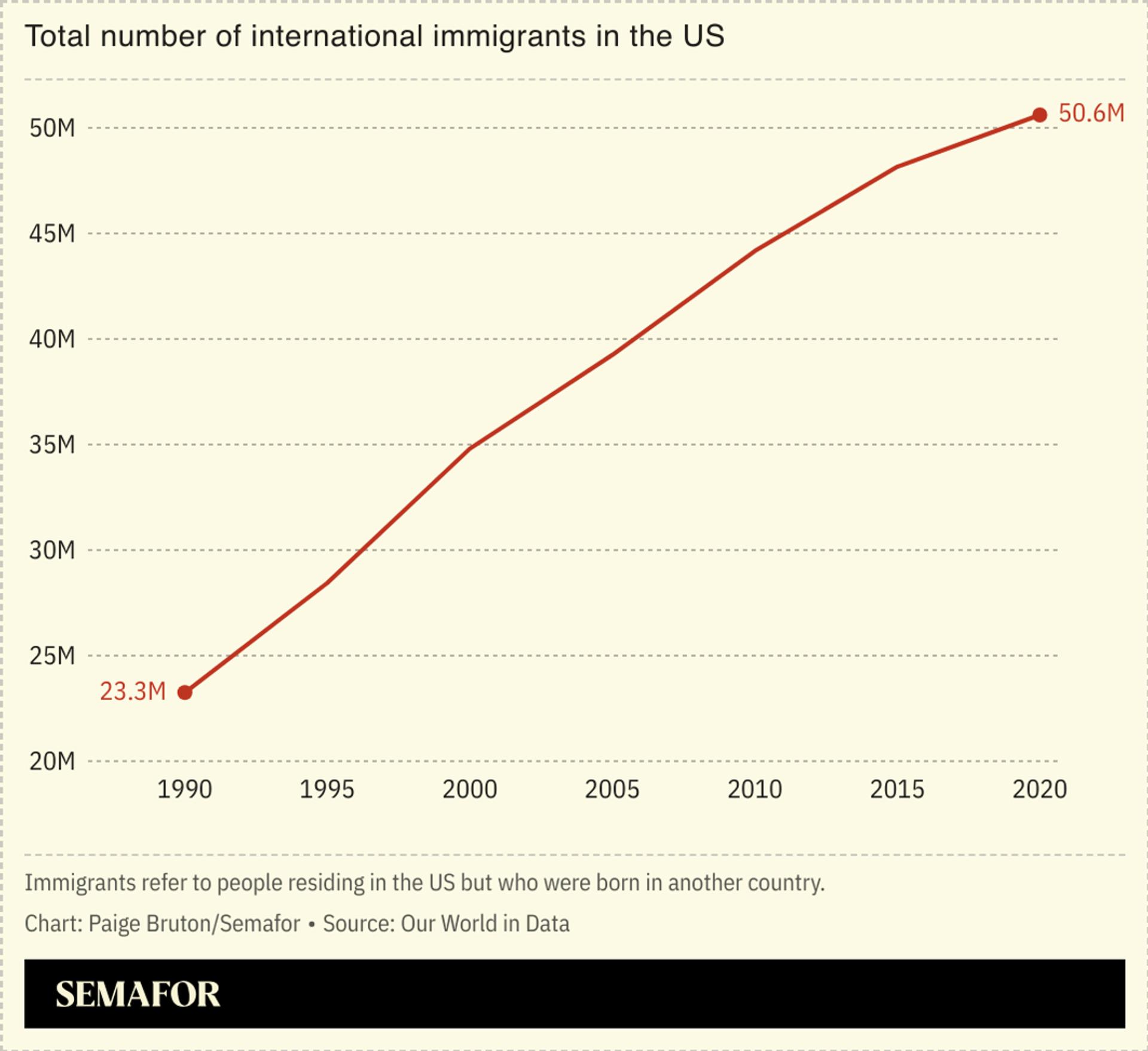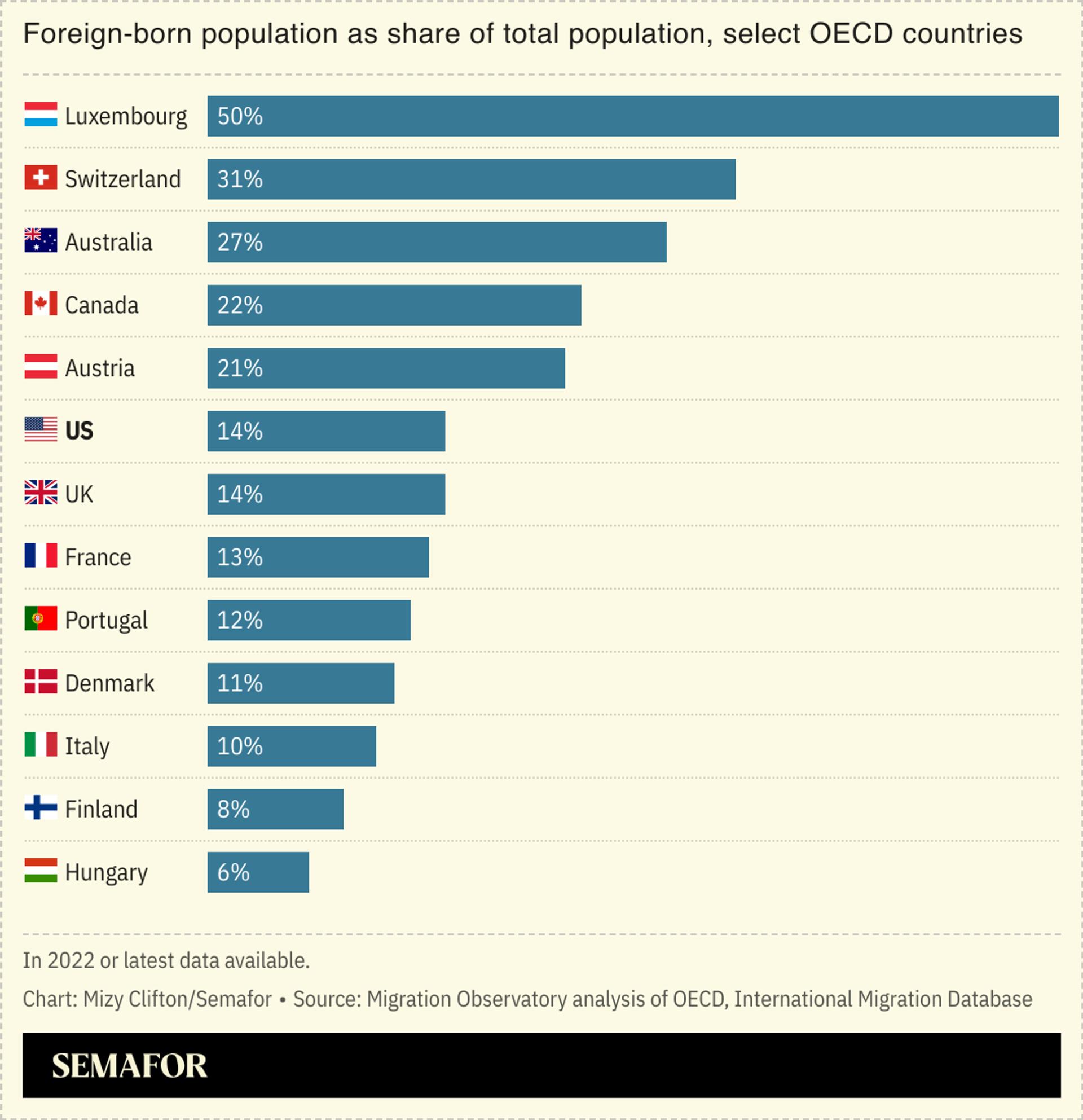The News
Immigration accounted for 84% of recent US population growth between 2023 and 2024, the Census Bureau said Thursday, with Florida, California, and Texas seeing the largest gains from international arrivals.
The US annual population growth rate was the highest since 2001, but “well within historical norms,” a Census Bureau demographer said. More significant is the diminishing role of natural increase — births outnumbering deaths — as international migration becomes the “primary driving force” of growth, she added.

SIGNALS
Immigration is increasingly unpopular, even as labor forces depend on it
The US isn’t alone in depending on migration for population growth amid declining birthrates in the West: The UK recently saw the fastest population increase since the 1970s, which was entirely down to immigration, even as deaths outnumbered births for the first time in 50 years, the Financial Times reported, and Australia is experiencing a similar trend. Still, despite the importance of immigration — which “keep[s] the labor force from shrinking” in aging countries, the IMF noted — whether legal or illegal, it is increasingly unpopular. Political questions are “harder to answer” than economic ones, The New Yorker argued. People’s attitudes to immigration also tend to remain consistent as they age, and aren’t very sensitive to actual economic conditions or migration flows, a study by the Migration Policy Centre found.

Harsher era for US immigrants will have ‘significant’ economic consequences
US border authorities deported more than 270,000 people in the last fiscal year, The Washington Post reported, while President-elect Donald Trump made tackling irregular migration a cornerstone of his campaign, pledging mass deportations from his first day in office. But ramping up deportation efforts will require his administration to pursue arrests in sensitive locations like schools, hospitals, and churches, which could trigger a backlash similar to that against his 2018 family separation policy, two experts wrote for the Brookings Institution. While it remains to be seen whether Trump will follow through on his campaign rhetoric, “almost certainly, immigration flows will slow and enforcement will become much harsher, both with significant consequences for the economy and beyond,” they argued.

